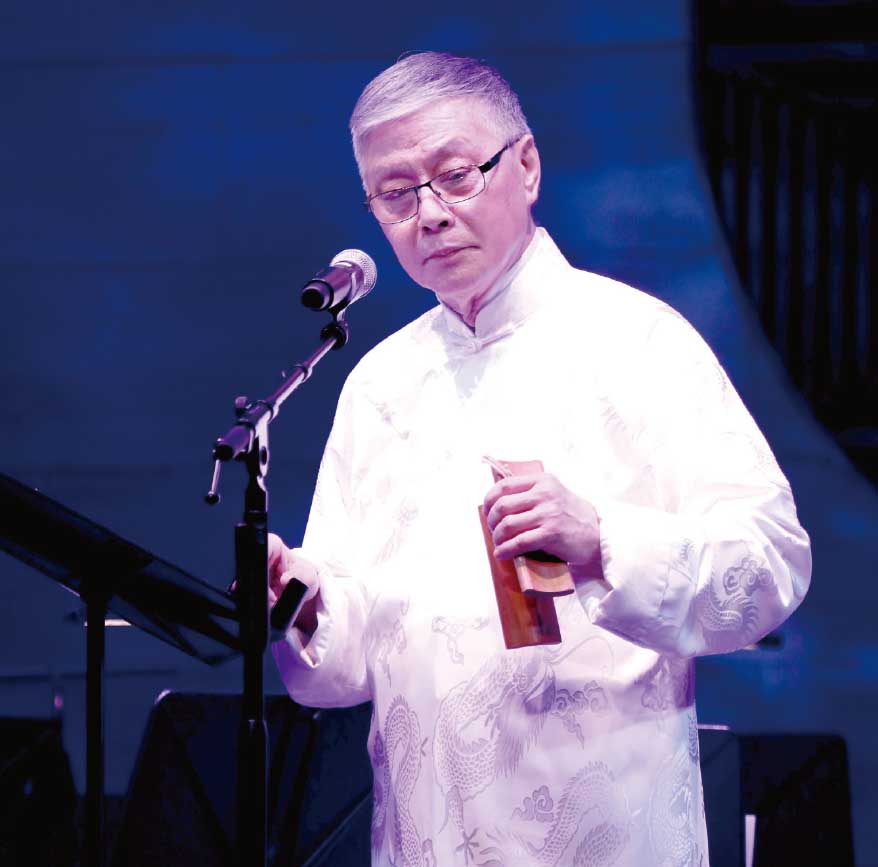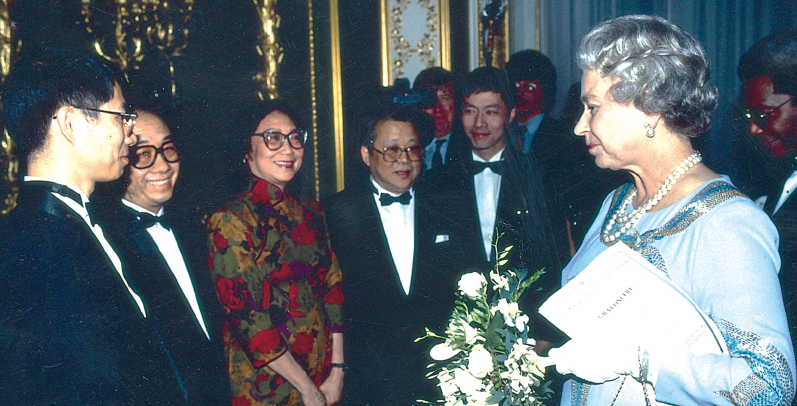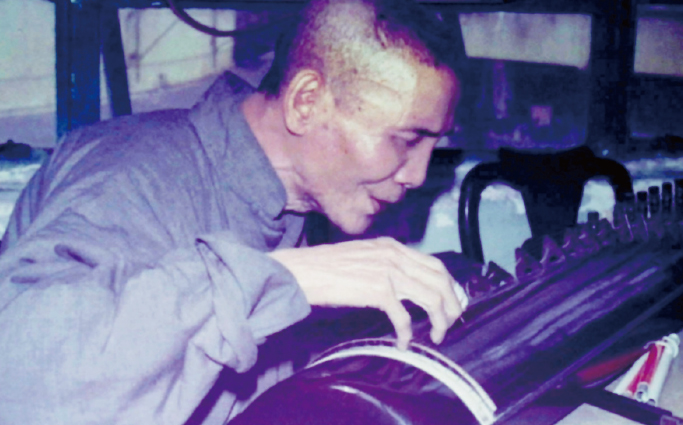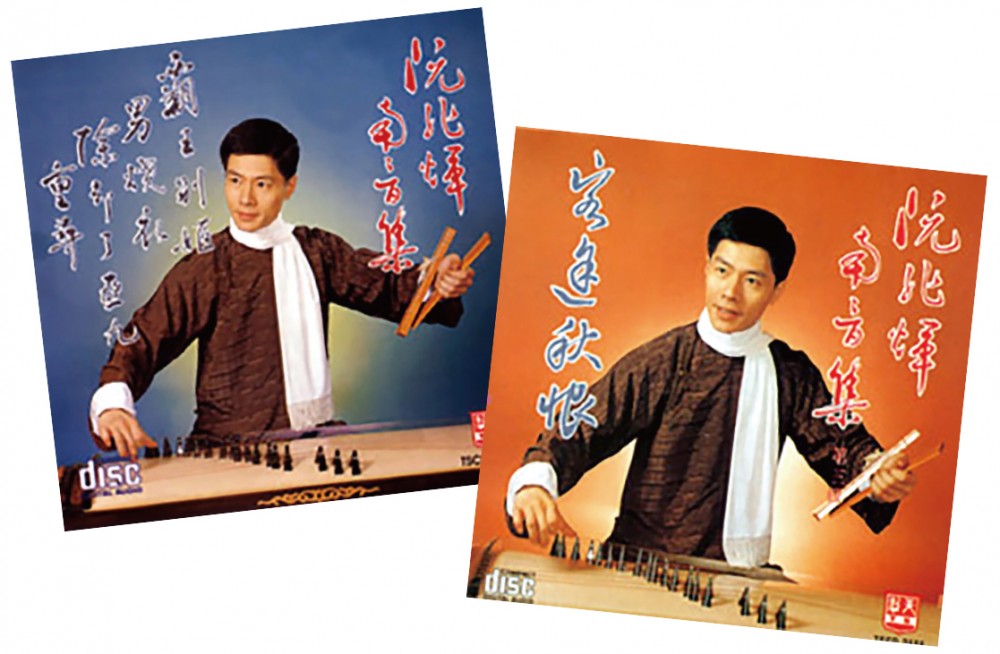The phrase “the autumn breeze comes in good time, while the moon beams in the boundless sky...” from the TV series The Duke of the Mount Deer 2000 were trending twenty years ago. Undoubtedly, only a handful of people knew that it originates from Wayfarerʼs Autumn Lament, a well-known naamyam song. Naamyam is a unique narrative singing tradition in the Cantonese dialect.

Revitalizing naamyam with younger generation
 The song Wayfarer’s Autumn Lament also appeared in the film Rouge. It must be admitted that in modern times, traditional Chinese opera often has to rely on the “blessing” of popular singers in order to gain visibility among the younger generation. In view of this, Yuen Siu-fai, acclaimed Cantonese opera maestro, has recently collaborated with singer Hins Cheung to write a new song A Drifting Song, integrating the elements of naamyam and Canton pop with the aim of promoting the former.
The song Wayfarer’s Autumn Lament also appeared in the film Rouge. It must be admitted that in modern times, traditional Chinese opera often has to rely on the “blessing” of popular singers in order to gain visibility among the younger generation. In view of this, Yuen Siu-fai, acclaimed Cantonese opera maestro, has recently collaborated with singer Hins Cheung to write a new song A Drifting Song, integrating the elements of naamyam and Canton pop with the aim of promoting the former.
Yuen said that he did not know Cheung personally before. It was only when he was exploring how to promote naamyam to young people that he, by chance, learned that Cheung was already interested in naamyam, thus bringing their collaboration into fruition. According to Cheung, his predestined affinity with naamyam began when he listened to a blind couple’s performance during his childhood. Yuen is convinced: “He indeed understands. It is evident once he starts singing that he has grasped the essence of naamyam.”
The making of a maestro began under a banyan tree
 Yuen’s exposure to naamyam also stemmed from his childhood experience. A few decades ago, there was a naamyam master in Hong Kong named Dou Wun, who used to perform under a banyan tree at Yung Shue Tau in Yau Ma Tei for a period of time. “At the time, I often squatted by the side listening. I began to like it over time.”
Yuen’s exposure to naamyam also stemmed from his childhood experience. A few decades ago, there was a naamyam master in Hong Kong named Dou Wun, who used to perform under a banyan tree at Yung Shue Tau in Yau Ma Tei for a period of time. “At the time, I often squatted by the side listening. I began to like it over time.”
However, the most memorable about Yuen are his achievements in Cantonese opera and performance in films, but not naamyam that he is now dedicated to promoting. Even in his published memoirs, Yuen did not discuss naamyam in detail. When asked why, Yuen merely modestly said that he has never formally learned naamyam and is just an enthusiast at best.
A mix of regrets and elation
Yuen has some regrets when it comes to the collections of naamyam songs he has recorded in a series of albums. One example is the song Baoyu Paying His Last Respects to Daiyu, which is very difficult to sing. After the album was released, he stopped singing the song in public as he felt that he did not sing it well enough. In addition, eminent librettist Chen Guanqing, after listening to Yuen’s recording of the same song, called the latter to point out that there were many errors in the libretti of the recorded version, which indeed made Yuen feel deeply ill-prepared.
Of course, naamyam has also brought Yuen wonderful experiences. He was invited to perform naamyam for the Queen of the United Kingdom in 1992. He recalled that it was the 40th anniversary of the Queen’s accession to the throne. For this performance, he co-wrote the song Ode to Hong Kong with renowned Cantonese opera librettist Yip Shiu-Tak. Yuen said that he did not want to sing praises as he is a Chinese after all. Therefore, the libretti had to be carefully crafted so as to be neither arrogant nor subservient.
Bent on passing down tradition to younger generation
 Yuen stressed that he is “not an expert” in naamyam. Nevertheless, he wants the tradition to be passed down. According to Yuen, he is currently collaborating with the Chinese University of Hong Kong to publish related academic monographs, with the aim of making further contributions in passing down the naamyam singing tradition, in addition to the recordings he made when he was younger.
Yuen stressed that he is “not an expert” in naamyam. Nevertheless, he wants the tradition to be passed down. According to Yuen, he is currently collaborating with the Chinese University of Hong Kong to publish related academic monographs, with the aim of making further contributions in passing down the naamyam singing tradition, in addition to the recordings he made when he was younger.
Yuen noted that the revitalization of naamyam should also involve school campuses to expose the younger generation to the tradition in order to plant the seeds of interest among them early. Currently, One Table Two Chairs Charitable Foundation, where Yuen is the Artistic Director, has made a lot of effort in the promotion and education in the area of naamyam.
Enthusiasm remains strong despite challenging journey
Yuen said frankly that he is not quite optimistic about the future of naamyam. He never fantasized that naamyam could one day surpass pop songs: “It is destined to be a niche interest.” Regarding passing down the tradition, Yuen never sticks to old approaches. He thinks that it is always a good idea to try anything that would revive naamyam, such as making it available on popular online music platforms for members of the public.
Yuen said that only blind songsters are able to bring out the desolateness embedded in naamyam songs. Looking back on such a journey, Yuen still said: “If a contract can be made, I would commit myself to traditional opera forever!” As he said it, his enthusiasm reminded people of the young man enchanted by Dou Wun singing under a banyan tree all those years ago.




